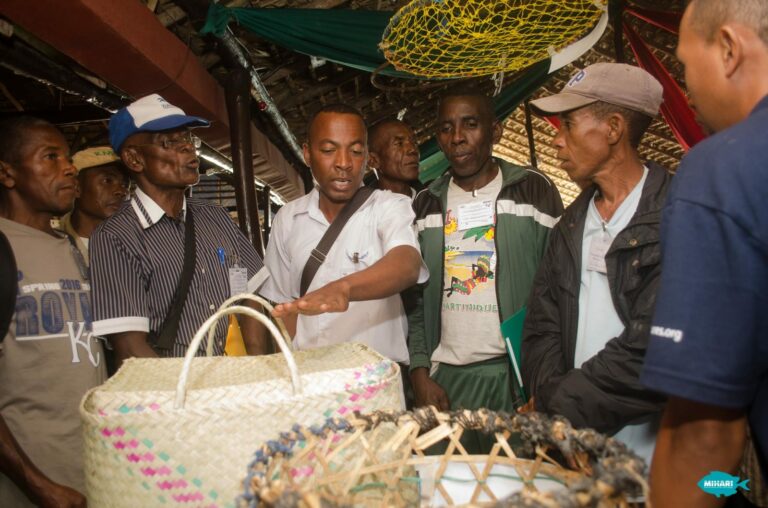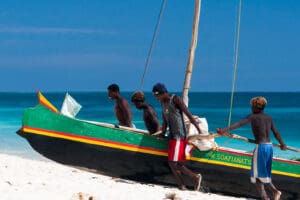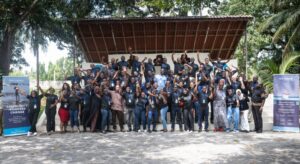Madagascar’s Minister of Fisheries and Aquatic Resources, HE Augustin Andriamananoro, recently hosted three landmark workshops in Morondava, Ambanja and Antananarivo, to discuss the future of the island’s lucrative mangrove mud crab fishery.
The three events brought together over 200 attendees from across the fishery supply chain, from fishers to exporters, researchers and government representatives. Having learned important lessons from the decline of the Madagascar shrimp fishery in recent decades, the attendees were keen to agree on and implement measures to secure the productivity of the mud crab fishery for the long term.
The mangrove mud crab (Scylla serrata), which can reach up to 3.5 kg in weight, is found in the estuaries and mangroves of Africa, Asia and Australia. In western Madagascar, this crustacean has traditionally been an important source of food for coastal people; however over recent decades appetite for this species has risen sharply with increasing overseas market demand for live and frozen crab.
The advent of live exports to China in 2012 led to a sudden spike in the price of crab and a flood of new fishers, buyers and exporters entering the fishery. Between 2012 and 2013, annual production increased by more than 50%, and the export value of Malagasy crab soared five-fold in 2015. This jump in demand has put unprecedented pressure on wild crab populations, threatening both the sustainability of the fishery and the livelihoods of thousands of fishers.
Guided by fisheries and ecological data collected and presented by Blue Ventures researchers and fishing communities from western Madagascar, the attendees agreed decisive steps to improve the sustainability of the fishery. These included reinstating a national three-month fishery closure from September 2019, and increasing the minimum catch size for crabs from 11 cm to 12 cm in 2020.
The workshop also endorsed the promotion of the garigary, a simple and effective hoop net, as the most sustainable crab fishing practice, and agreed strategies for the reduction of post capture losses of crab catches − a major source of lost revenue within the fishery. Consistent with recommendations from Madagascar’s national network representing small-scale fishers, MIHARI, the attendees also agreed steps for improving communities’ legal rights to enforce rules and regulations to safeguard their local fisheries.
Rindra Rasoloniriana, Blue Ventures Fisheries Projects Coordinator, said, “The strength of these workshops lies in the participation of all stakeholders, with NGOs, local authorities, ministries and local communities working together to manage this important fishery.”
A Good Practice Guide to Crab Fishing in Madagascar, produced by Blue Ventures in collaboration with MIHARI and the Ministry of Fisheries and Aquatic Resources (MPRH), was launched during the workshop to highlight recent advances in strategies for reducing post-capture losses. The guide summarises the results of eight years of research and field testing of sustainable crab fishery management interventions in western Madagascar, and provides practical recommendations to help fishers secure better incomes whilst reducing pressure on crab stocks and protecting the mangrove environment.
Jean-Philippe Palasi, Blue Ventures Country Director, said, “Our participation in these workshops represents a strategic contribution to our core mission to rebuild fisheries in Madagascar and beyond.”
The workshops were co-organised by the MPRH in partnership with MIHARI, Blue Ventures, WWF, Wildlife Conservation Society and Conservation International.
“This is the most impactful and concrete workshop MIHARI has organised to support sustainable fisheries management in Madagascar.” – Vatosoa Rakotondrazafy, MIHARI Network Coordinator
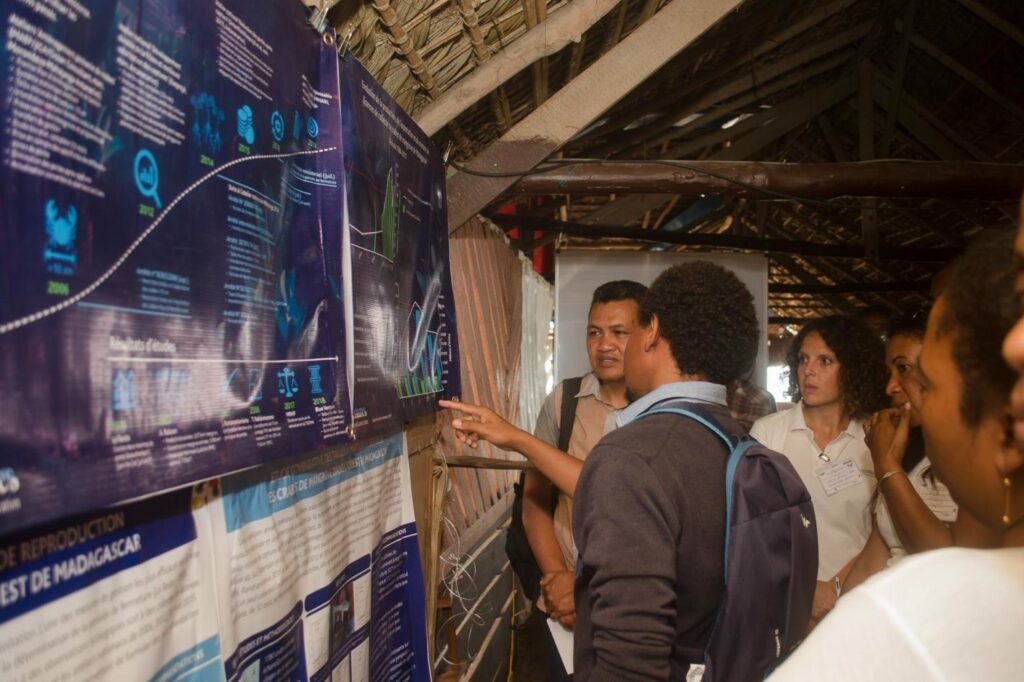
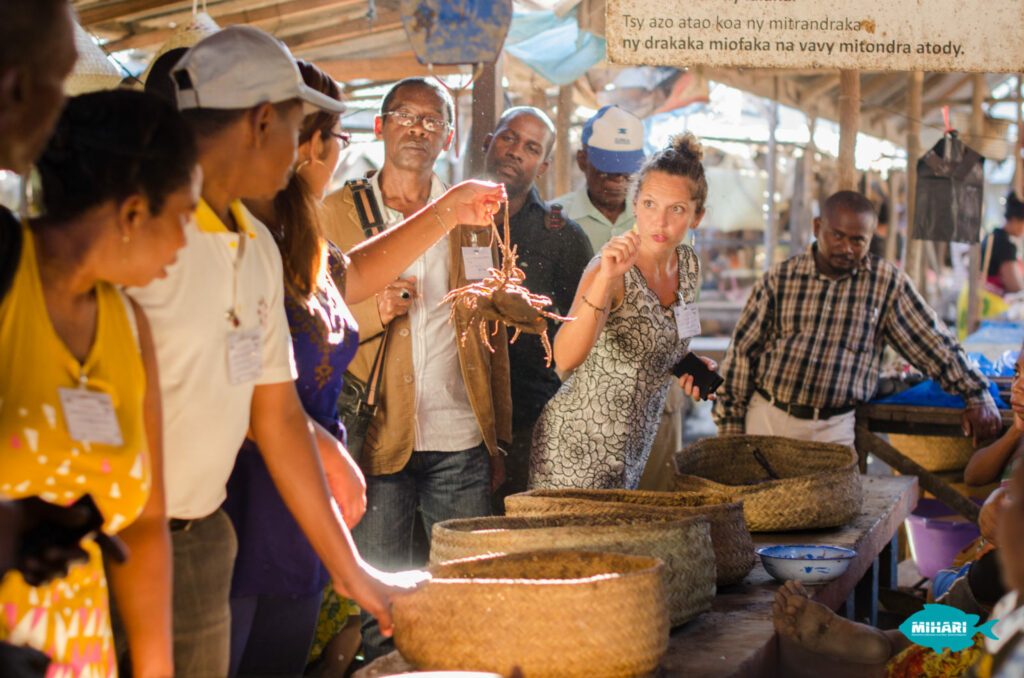
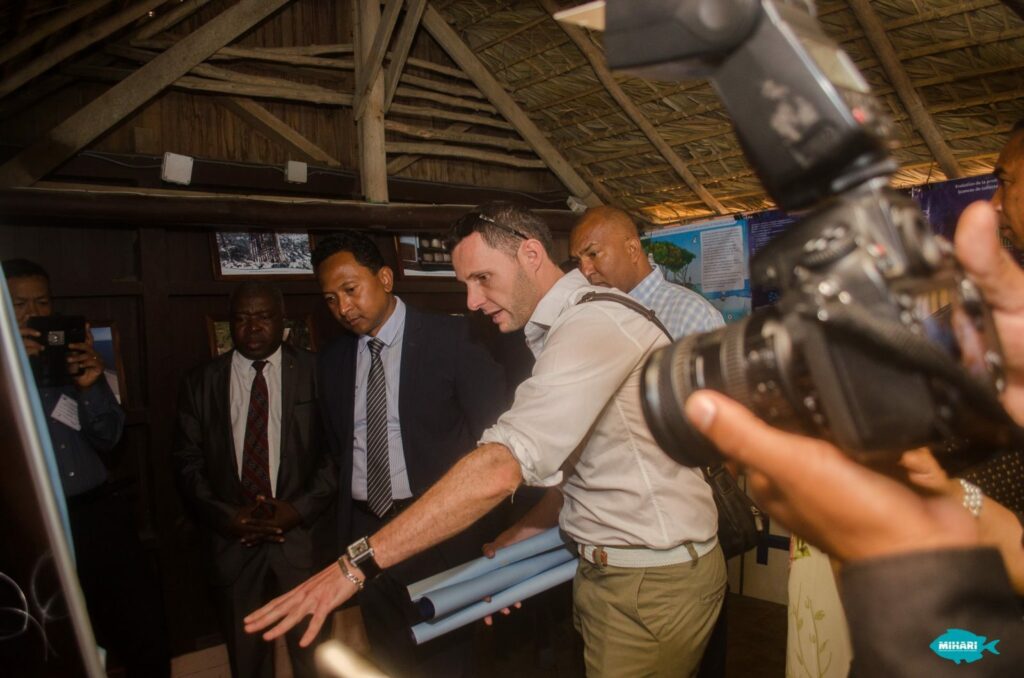
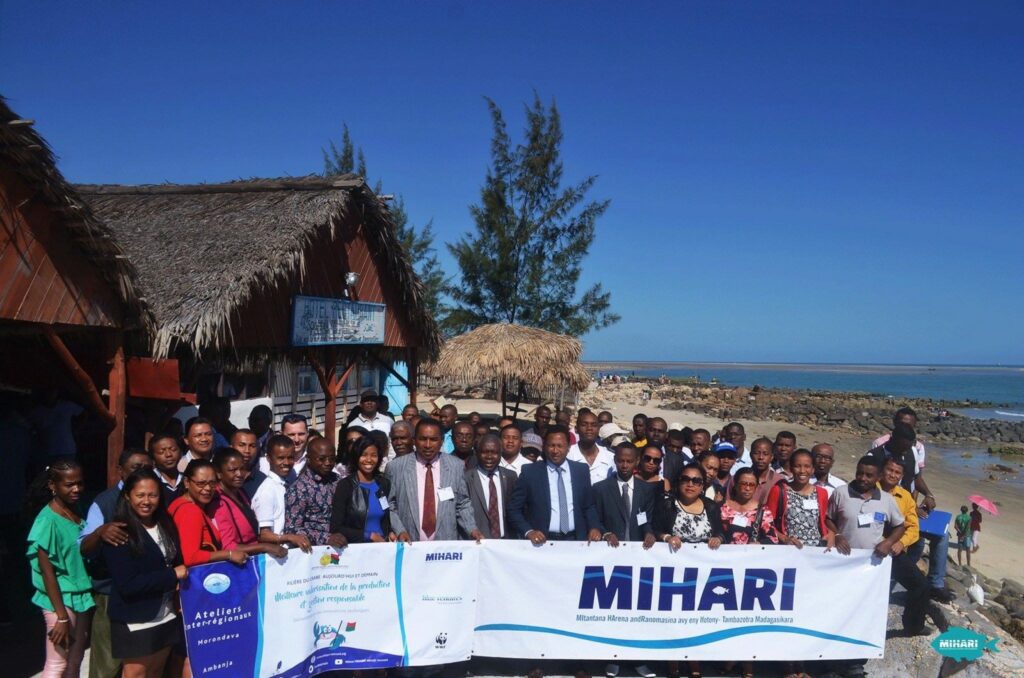
Contact Adrian Levrel for more information
Articles from the Malagasy press: Midi Madagasikara and News Mada
Find out more about our work rebuilding fisheries

